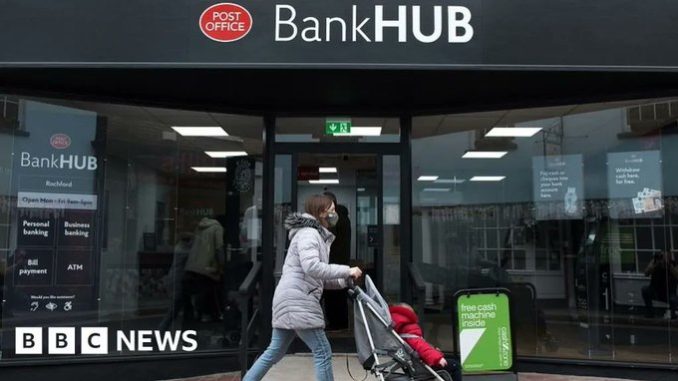
The charity’s research suggests 27% of over-65s and 58% of over-85s rely on face-to-face banking.
Charities and consumer groups have called for an acceleration in the introduction of banking hubs, when all branches have closed in an area.
These hubs have counter services run for the major banks, often by the Post Office.
They also have dedicated rooms where customers visit community bankers from their own bank. The costs of the hub are shared between the participating banks.
According to consumer group Which?, another 48 banking hubs have been agreed for areas across the UK, but they can take 12 months to find a premises and get up and running.
Banks have pointed to the large reduction in branch use – a trend accelerated by the Covid pandemic – and the popularity of managing money via smartphones, as good reason for diluting their branch network.
But Age UK said its survey suggested those who were most likely to feel uncomfortable using online banking were aged over 85, female, on a low income, or more disadvantaged than their counterparts.
Among those who were uncomfortable, the key concerns about online banking were fraud and scams, a lack of trust in online banking services, and a lack of computer skills.
The survey size becomes relatively small when broken down, but Age UK said that 34% of those with an annual income of less than £17,500 mainly banked face-to-face, compared to 15% of those with an income of £30,000 to £49,999 a year.
Separate figures show that, since the start of 2020, more branches have closed in poorer parts of the UK than in better-off areas.
In its report called « You can’t bank on it anymore », Age UK said it was vital that physical banking spaces were protected.
